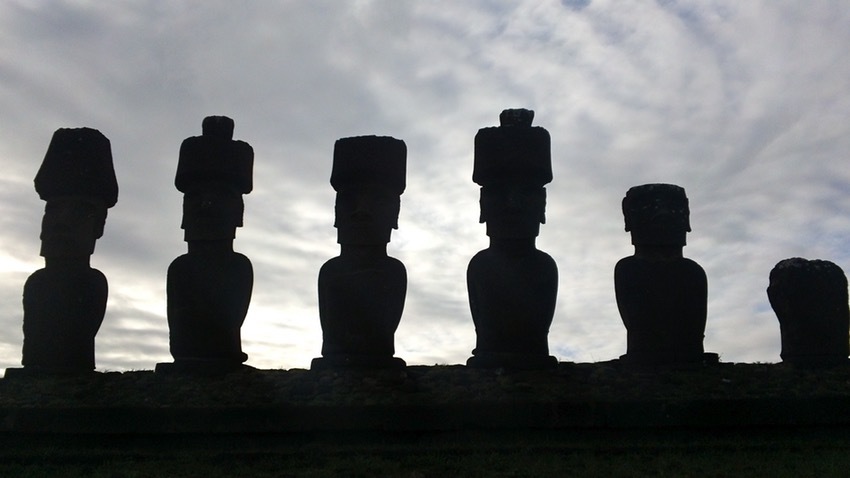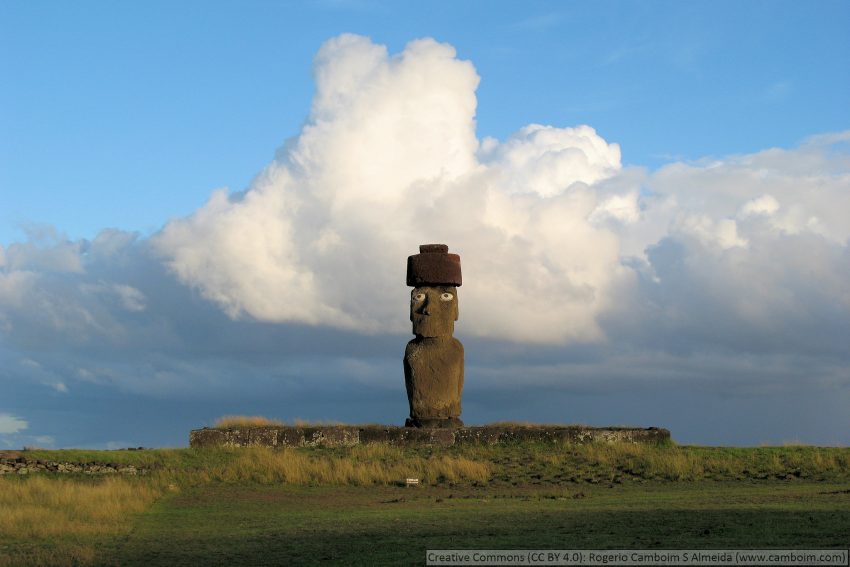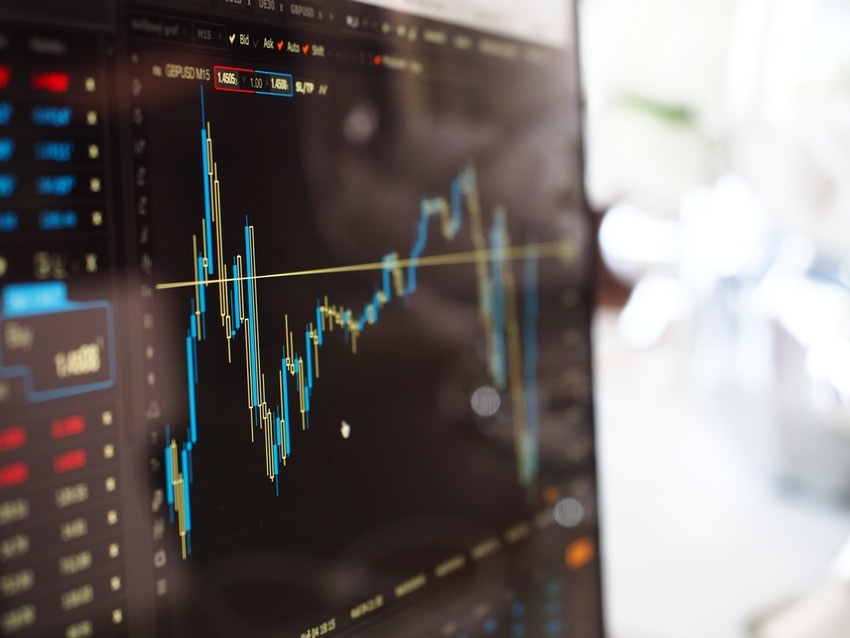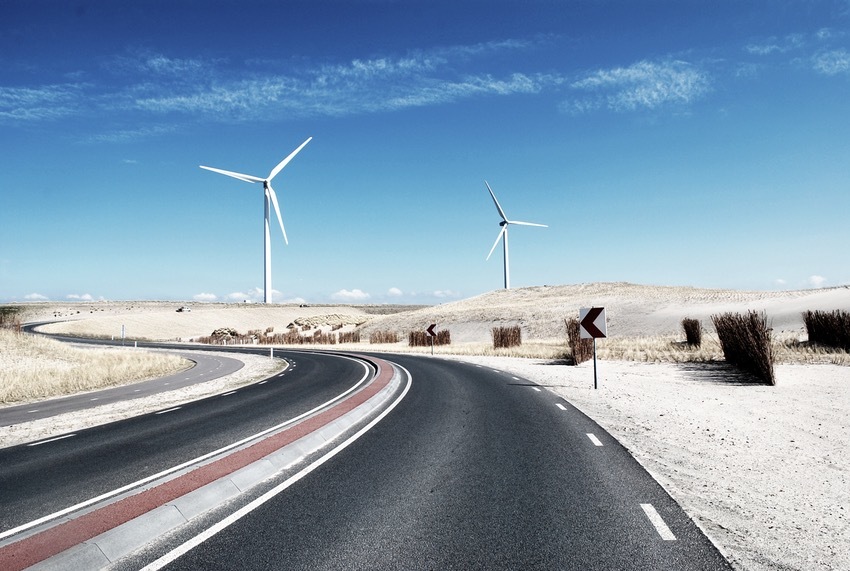When our human systems, be it agricultural, energy, social, political, or economic are not serving us anymore, we need to question them, or risk a demise like that of the early Polynesian inhabitants of Easter Island.
What transpired on that lonely island was a kind of beta test phase for our entire lonely planet, the results from which, we would do well to learn. There, at one point, the island’s ecosystem provided for all human needs. The vegetation of the island provided food for the population and homes for birds and animals, which in turn also became food for the people there. The trees also provided timber, to make their houses and the huge rollers that transported the iconic, stone Maui statues around the island.
Then something happened. As the population grew unchecked, the forests shrunk. People asked no questions, they made no adjustments, until one day they all looked up and saw that no trees or vegetation remained. Naturally, the fruit disappeared with it, the animals and birdlife disappeared next, and then just as the lights went on and they realized they needed to question their way of life, they too disappeared.
How foolish were they not to see this coming? And how foolish would we be today, not to learn from their failure?
IN THE PHOTO: THE ONLY MOAI ON EASTER ISLAND WITH THE EYES RESTORED – PHOTO CREDIT: ROGERIO CAMBOIM S A
I’m all for living in the present moment, but I don’t mind keeping an eye on my forward trajectory from time to time. Such an approach might have saved our Polynesian friends. They might have made observations of problematic symptoms, such as ‘There’s not much food about”. Then they might have had an informed, open discussion to identify the underlying cause of those symptoms. Perhaps they would have concluded that ‘too many people are chopping down too many trees’. Then they could have had an inclusive and creative debate, free from individual and political bias, leading to the right solutions, having considered all known collateral and future impacts.
Solutions might have included ‘We need to have fewer people’, or ‘We need to stop moving these statues around the island’. Both solutions would have ruffled many political, religious and social feathers. Johnny Woodchopper also would have been upset. But the implementation of that change would have instigated the beneficial evolution of their systems, and those giant stone statues wouldn’t need to look so sullen.
It’s all about the paradigm, power and labels
Such steps that can lead to meaningful progress are hard to find, however, in the case of our modern economic system. To discuss the sustainability of the prevailing economic system in most countries is off-limits. In Australia, my country, many believe their mostly unobstructed version of capitalism no longer serves the majority of people or the environment upon which we all depend on to survive. But when it comes to identifying it as the source of undesirable symptoms and having a discussion about tweaking it or even replacing it with something else, one is considered to be somewhat insane.
Related article: “PADDLING THEIR WAY TO EDUCATION“
Why is discussing the economic system is unthinkable?
The sway of paradigms: One explanation of why we don’t examine the fundamentals of our economic system arises out of the concept of paradigm.
Unregulated capitalism is one name we could give to our economic paradigm or framework. The underlying, unseen and unquestioned assumptions include the idea that money is wealth and that infinite growth is not only possible but essential.
These assumptions are so intrinsic in our mental processes that they are often confused with the truth. If our mental framework assumes that economic growth is an immovable fact of life, we restrict the scope of our solutions as we look to work around it and protect it at all costs. Sometimes those costs are enormous human and natural ruin. We’ll seek alternate and often ineffectual solutions because we cannot challenge what we perceive to be the truth.
On the other hand, if we can step outside of this paradigm and reach a place where we can be critically objective in evaluating the assumptions, we would find a vast increase in the problem-solving options available to us.
PHOTO CREDIT: PEXELS
Another reason for why we don’t question the economic system is because there are potent forces at work to either keep the paradigm concealed or if indeed it is exposed, to encourage us not to question it.
Corporations have a tremendous vested interest in maintaining the status quo. They were born out of capitalism and have evolved with it. They are the perfect product of this paradigm and as such have built-in protection against changes that might upset their profits and their power.
These entities have no interest in a conversation about moderating capitalism or growth. Why should they? Be it through lobbying, corporate propaganda and even product advertising, their message is clear – we need to consume more, and we need to continue to grow, interminably.
Mainstream media is on board as well, being owned or controlled by the same structure. Their message is full of image-driven and often fear-based disinformation that serves to re-enforce the paradigm as fact.
Aside from corporations and their media, government’s involvement in this psychological assault is the most insidious of all.
We are increasingly pleading and protesting it to stop destroying our communities…
Initially designed to represent the voters, and more and more so representing the companies that lobby it, we find the perverse situation where representative government is actually at war with its constituents. We are increasingly pleading and protesting it to stop destroying our communities, selling our public assets and endangering our living planet at the behest of the economic system.
The damaging role of labels: Finally, after centuries of accelerating propaganda from the corporate and government sector and now also perpetuated by a significant part of the civilian population that subscribes to the assumptions, there is the identification with labels.
Capitalism is one such label, but it is only a theoretical term. I don’t know of any country on earth that hosts a purely capitalist economy. Every country has at least some social services, making them at best, a Socialist-Capitalist hybrid. But we have an obsession with labels. Anyone so much as suggesting socialist ideas, is labelled a Commie or a Leftist Hippie.
Let me demonstrate how unhelpful labels are. I am a person who “has religious beliefs that are different from those of the main religions”. This is the definition of paganism, but I do not flit about calling myself a Pagan. The label conjures up images of sacrificing babies and lewd acts with goats and the like, and that is the danger of dealing with labels instead of the underlying character or characteristics.
Labels create alarmist reactions.
As individuals and in our communities, we need to identify the economic assumptions such as money is wealth and that infinite growth is necessary, as paradigm, not fact. We need to discuss this openly and without ridicule, intimidation or castigation. And finally, we need to be able to have the discussion free from being labelled one thing or another.
PHOTO CREDIT: PEXELS
Money as a measurement of wealth
The first supposition that we need to talk about is whether money is a valid measurement of prosperity. Money itself has no intrinsic value. It has been represented by clam shells, gold, paper money and nowadays by electronic money with no physical representation at all.
One might argue that gold has a value. But it’s a dense, useless, shiny piece of metal. And gold jewelry is only considered valuable because it is made of money, so to speak. Money’s only value comes about when we dispose of it; when we trade it for those goods and services that do have value.
Money is indeed a measurement, but not of wealth. It is a measure of your ability and capacity to trade.
Related article: “THE REAL IMPACT OF US WITHDRAWAL FROM THE PARIS CLIMATE ACCORD“
Therefore, money is a means to an end, it is not an end in itself. I broadly define an end that has value, as one that contributes to a good life and one that improves genuine wellbeing. Of course, we do need some money, a lot less than most of us think, to trade for the things that we need to live a good life.
If we treat money for what it is, a middle man that stores the product of our working days, until it is assigned to the purchase of something, then inversely and in the words of Henry David Thoreau, “The price of anything is the amount of life you exchange for it.” It’s a kind of literary algebra that exposes money’s real purpose as a means of exchange for a good life.
Have we put the cart before the horse?
This algebra, crude as it is, was not something I could fully fathom back in my first few years out of university. In 1995, at twenty-three, I had been working two full-time jobs for over a year and was treating the means, money, as an end in itself.
I was chasing money for money’s sake and didn’t realize that the legitimate end that all this money was originally designed to be applied to, a good life, I already had found without any such money when I was a student. Absurdly, all this chasing of money had prevented the attainment of that end, as wellbeing and happiness were on a horse that had already bolted.
One cannot measure non-numerical qualities with a numerical measurement.
I failed to recognize that once I had enough, once my basic needs had been met, more money was not making me any happier, but rather was causing high levels of stress, poor health, and unhappiness.
Using money as a measurement for prosperity doesn’t serve anyone. One cannot measure non-numerical qualities with a numerical measurement. How do we measure a good life, the quality of our communities and our relationships, which over and again have been proven to be far more important to happiness than financial wealth? How do we measure liberty, freedom of speech, security, the quality of education and the amount of free time we have to pursue our interests? We cannot measure any of these things with something numerical like the amount of money we have or earn.
Infinite growth in a finite world
The second assumption of the economic paradigm that we accept as fact is that infinite growth is both possible and desirable. Sure, there was a time when growth was advantageous and using it as an indicator of how well we were doing was appropriate. Perhaps a century ago when our population was but a small fraction of what it is today and when we still had abundant resources, the growth model succeeded in bringing us housing, energy and food for our bellies. But it is no longer a good thing, or even possible for that matter.
We must respect the planet’s very real limits.
Science, if you believe in such a thing, proves that we are not respecting these boundaries. For instance, our human population is currently consuming 1.6 planets worth of resources. This is not evenly distributed, however. If every person consumed the same as the average Australian, we would need 4.8 Earth’s to do so.
How are we making up for these deficits? There are two primary sources.
PHOTO CREDIT: PEXELS
The first is the future. As we further outgrow the earth’s limits and overconsume non-renewable resources, we are borrowing, on a non-repayable loan, from future generations. Those future generations will look at their bare and polluted planet, scratch their heads and wonder why on earth we did this.
The second way countries consume more than their fair share is by plundering other nations, be it through questionable financial arrangements, political persuasion and corruption or increasingly these days, straight up military invasion.
We need to ask the big questions
To modify the way we think about prosperity at the individual level is part psychological and part practical, but it all starts by questioning it and changing the conversation.
At the nation-state level, to change the way we measure prosperity, and therefore how we go about achieving it, is an enormous task but it too starts with questioning it. We have to accept the fact that the current methods, both individually and system-wide discourage maintaining the very basis for life – an ecologically functioning and sustaining biosphere. We rely on it to live so what could be a higher priority.
It is not easy to have this conversation; we have not had to do so in the past while our population and lifestyle was within what the earth could sustain. But we have outgrown that now.
…forces tell us that such a change will cause catastrophic economic collapse or adjustments that are at best uncomfortable…
Because of the paradigm and the forces acting out of self-interest that muffle the conversation, we further avoid talking about it, let alone changing it. But even if those forces tell us that such a change will cause catastrophic economic collapse or adjustments that are at best uncomfortable, it is still nowhere near the scale of what will happen if we don’t change.
Remember Easter Island? Whether we need to change is not in question. The question is, do we change now, or do we first make the earth less habitable and then try to change?
And then when we find answers?
Unfortunately, change is not going to come to us from the top down, or if it does, it will be at a glacial pace. But who wants to wait? In Australia, I see it only getting worse before it gets better. While I will continue to protest against my government destroying my world, in essence for money, I will also heed the words of the famous Stoic Epictetus, “Some things are up to us, and some are not up to us.”
Instead of witnessing the world’s slow and necessary death (with me in it), I have jumped ship and started living in a new system – a new system not based on money and consumption. The new system focuses on genuine well-being, human and community connection, and respect for nature. It does its best to get away from the crazy idea that consumerism and a life-long pursuit of money will somehow bring you happiness.
PHOTO CREDIT: PEXELS
How this new world takes shape for everyone will be different, everyone has different circumstances. For myself, it meant leaving it geographically, but this won’t apply to everyone. We can make meaningful changes without changing our location. By seeing the paradigm, asking the big questions and abandoning the assumptions that are so patently incorrect and unsustainable you can withdraw your support for it.
By all means label me, call me a subversive, Pagan minimalist or an anarchist outravert from consumer society. But all I aspire to, despite the labels, is to respect nature’s limitations and to live a good life.
Recommended reading: “MORE THAN HURT FEELINGS: THE REAL DANGER OF HATE SPEECH“















